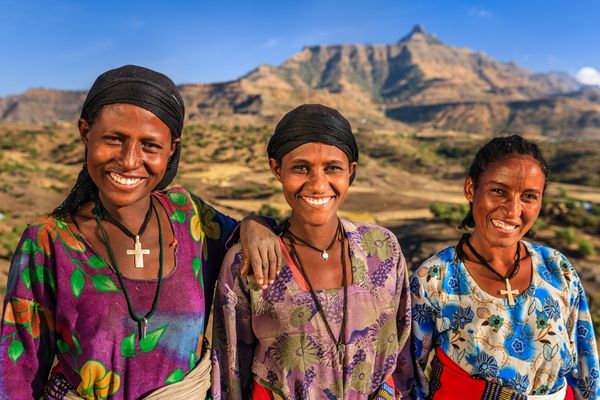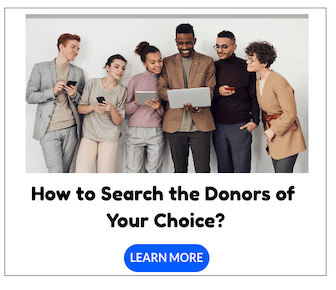
Deadline: 25 April 2023
The African Women’s Development Fund (AWDF) is excited to launch its Grants cycle 51, and invites applications from organisations led by women and/gender diverse persons/women living with disabilities, on the African continent.
Grant Streams
- Main Grants
- AWDF’s first call for the year is prioritising women’s rights and feminist organisations in French speaking Africa as well as organisations led by women experiencing multiple forms of discrimination including those led by young women, gender diverse people, women living with HIV and women living with disabilities.
- In acknowledging the specific contexts in French speaking African countries and the different dynamics within the feminist landscape in Africa in relation to the ongoing conflict and security challenges, in this cycle, AWDF is making a deliberate effort to move resources to women’s rights and feminist organisations in French speaking African countries. Similarly, with the closing civic space, the rise of homophobia and xenophobia in Africa, and the limited access to funding to support interventions led by minoritised women and gender diverse groups, AWDF is also prioritising support to sexual minorities and other minoritised groups who are most impacted by the challenging contexts and other emerging trends in African countries.
- Where?
- In this cycle, AWDF particularly welcomes and will prioritise applications from organisations from French speaking African countries.
- What?
- Is your organisation working to address key issues impacting women and girls in your community, such as projects that focuses on amplifying women, girls and gender diverse peoples voice or aims to change social norms, or policy?
- If so, AWDF invites you to submit an application to the next call for applications.
- KASA!
- Sexual and gender-based violence is a significantly widespread violation of women, girls and gender diverse persons in West Africa. Sexual violence significantly impacts individual health, safety and wellbeing as well as women’s quality of life. Research shows that sexual violence is not only prevalent but also significantly underreported in Ghana, Senegal and Nigeria. The impact of the COVID-19 pandemic, increasing inequalities and global economic decline continue to complicate response to sexual violence. Sexual violence/abuse refers to any sexual act or attempt to obtain a sexual act, or unwanted sexual comments or acts to traffic, that are directed against a person’s sexuality using coercion by anyone, regardless of their relationship to the victim, in any setting, including at home and at work.
- Reports show that there is a significant gap in legislation on sexual violence in Ghana, Senegal and Nigeria. This is compounded by the inadequate post rape and sexual violence care and support services to survivors of sexual violence in these focus countries. In Ghana, survivors face a lack of access to medical resources that allow for adequate post-rape care, and in Nigeria, with a population of about 200 million, and 50% of that being women, only 33 sexual assault referral centres exist. In Senegal, activists continue to bridge this gap, however, survivors of sexual violence are still without adequate access to care.
- Where?
- Are you a feminist or women’s rights organisation in Ghana, Nigeria or Senegal working on sexual violence issues?
- What?
- The Kasa! Initiative seeks to achieve the following outcomes:
- Positive attitudes and behaviours towards women’s bodily integrity promoted.
- Improved responses to emergencies and adequate support provided to survivors/families.
- Leadership by and higher profile of women’s rights organisations at the forefront of ending sexual violence.
- Increased awareness and action around cultural, religious, and social narratives on sexual violence by responsible stakeholders.
- Counter-narratives are established to counter existing attitudes and behaviours that perpetuate rape.
- Multi-agency/donor/private sector collaboration initiated with a commitment to programming over the next five years.
- Is your organisation’s work contributing to the outcomes of the Kasa! Initiative in Ghana, Nigeria or Senegal? If so, AWDF invites you to submit an application in response to this call for applications.
- The Kasa! Initiative seeks to achieve the following outcomes:
- Economic Justice and Security
- The economic justice futures of African women are critical to sustainable development at regional and global levels. AWDF’s 2017 Futures Africa report describes African women as a powerful yet untapped economic force whose inclusion is critical to advancing macroeconomic frameworks that have potential to directly transform the wellbeing of 50% of the continent’s population. AWDF’s theory of change for the proposed project posits that local level interventions are a key component of ensuring economic justice for women in Africa, reaching women where they live, work, agitating and driving change.
- The goal for this intervention is to identify and dismantle the barriers to economic justice and equality for African women by reimagining AWDF’s economies, and rethinking mechanisations, craft, and intellectual knowledge from micro to macro level. AWDF will achieve this by identifying and supporting spaces and dialogue, influencing and agenda setting and advancing women’s equality.
- Where?
- To address economic inequality, AWDF invites applications for the Rights and Equality Fund: Economic Justice for Women in the Africa Region.
Which grant should You apply for?
For this Call for Applications, there would be three types of grants to choose from according to the area of work and goal of your application. The types of grants are described below:
- Open/Main grant – This grant covers all areas of work that promotes the rights of women, girls and gender diverse persons’ rights. Depending on the applicant’s 2022 verified income, you can apply up to a maximum of USD100,000 per year for two years, making USD200,000 for two years.
- Kasa! grant – This is a grant specifically for Women’s Rights Organisations registered and working in Ghana, Nigeria and Senegal working on sexual violence issues. This grant is for not more than USD30,000 per year for two years, making USD60,000 for two years.
- Economic Justice grant – Community organisers, community-based organisations, women’s rights organisations and feminist networks that are working with local communities doing economic justice work to identify and dismantle the barriers to economic justice and equality for African women are eligible to apply. This grant will not provide funding for income generating projects. This grant type is for small grants of no more than US$9000.
Eligibility Criteria
- Cycle 51 Call for Proposal: Main Grants
- Are you an organisation led by young women, LBTQI and non-binary people, women living with disabilities, or another minoritised group?
- If so, AWDF invites applications from women and/gender diverse persons/women living with disabilities led organisations on the African continent. AWDF is prioritising applications from organisations whose total 2022 budgets were less than USD200,000. A small percentage of organisations with budgets more than USD200,000 may be considered.
- AWDF defines a woman-led organisation as an organisation whose Board Chair and Chief Executive/Director are both women or non-binary, and where at least 70% of the board and staff members of the organisation are women or non-binary.
- Cycle 51 Call for Proposal: KASA!
- Are you a women’s rights organisation working to address sexual violence in Ghana, Nigeria or Senegal? AWDF will consider applications from interested women-led organisations who have been registered for at least three years (before April 2020).
- AWDF defines a woman-led organisation as an organisation whose Board Chair and Chief Executive/Director are both women or non-binary, and where at least 70% of the board and staff members of the organisation are women or non-binary.
- Call for Proposals: Economic Justice and Security
- AWDF will consider applications from community organisers, community-based organisations, – Women’s rights organisations and feminist networks with experience who use innovative and creative approaches working with local communities, – Women and gender diverse people working on economic justice using feminist research to identify and dismantle the barriers to economic justice and equality for African women by reimagining the economies, and rethinking mechanisations, craft, and intellectual knowledge from micro to macro level.
For more information, visit AWDF.
